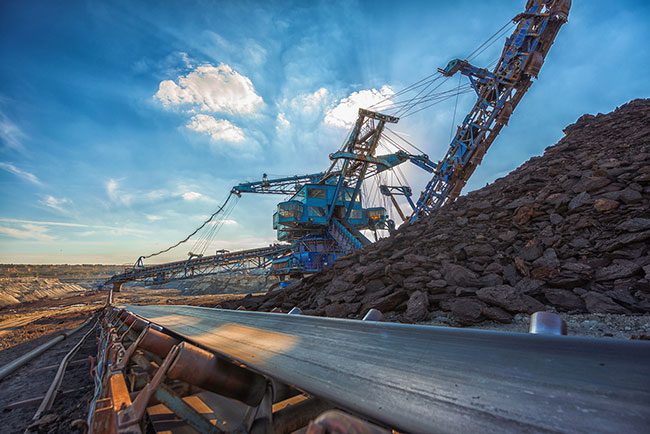Overland Conveyor is an alternative to Truck and Haul

Have you ever wondered how materials from a mining area get to a processing plant? There are different means that can be used to transport the high tonnage materials over long distances. Some of the methods that can be employed include the use of rail, trucks, or overland conveyors. An overload conveyor is a type of conveyor that moves materials from the mining pit or source and moves it over a road, railway, or river.
Overland conveying is an alternative to truck and haul modes of transportation. However, it is not without saying that it comes with its own advantages and disadvantages as discussed below.
Advantages of overland conveyors
Cost effective
An overland conveyor is more cost effective compared to other modes of transport. They have a much lower running cost and thus help in making huge savings since they can be able to carry more load at once. Additionally, they do not require as much maintenance and have less fuel consumption.
High speed
Overland conveyors move materials faster and in a more efficient manner. This, therefore, reduces the amount of time and manpower required to deliver all the materials to the end point. Due to the high speeds, the overland conveyor is also able to save on costs since a higher tonnage is transported at a go. The conveyors can be used in areas where trucks cannot access such as narrow tunnels and this makes the method more convenient.
Environmentally-friendly
The overland conveyor operates in an environmentally friendly manner since it is powered by electric motors. This, therefore, means that there are less emission and less noise production. This in return ensures that there is no chaos with the neighboring residents.
Disadvantages of overland conveyors
High start-up capital
Building an overland conveyor is very costly since high-quality materials have to be used to prevent corrosion and breakdown. The starting equipment such as couplings, VSDs, and coolers are expensive to purchase. A lot of manpower is also required in order to complete the project.
No flexibility
Compared to other modes of transport such as trucks and loaders, the overland conveyor is the least flexible in terms of moving it. It is nearly impossible to move or relocate the conveyor from one point to another and hence the process can be very costly.
Types of materials transported by overland conveyor
- Wood
- Coal
- Iron ore
- Grain
- Waste
- Rocks
- Gravel
- Sand
Do overland conveyors have any competition?
Transporting bulk materials can be made possible using other means such as trucks, water, and rail. This means that overland conveyors face competition from the other modes, especially in situations where a company cannot afford to build a conveyor, or the materials are being transported over a large area covered with water such as an ocean. However, different modes can be used together to overcome different obstacles.
However, the overland conveyor is still the best option because of its cost effectiveness. As a company, you will want to cut on costs and make huge profits. Then, the conveyor is an investment you should consider because you will not have to worry about frequent breakdowns and replacement of worn out parts or tires.
Overland conveyors are custom made and this means that they are built to suit their tasks and the terrain of the land over which they pass. If you are convinced that overland conveyor is what you need to make your business dreams a reality, then Swanton Wielding and Machining is your go-to place. We have an experience of over 50 years in the custom fabrication and welding industry.
We have designed and fabricated state of the art equipment and we are committed to meet our client’s needs. Visit our website swantonweld.com to see some of our amazing works. You can also contact us at 419-826-4816 or email us at info@swantonweld.com and let us know how we can assist you.

